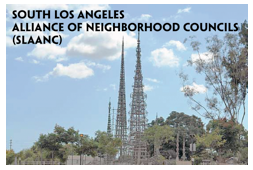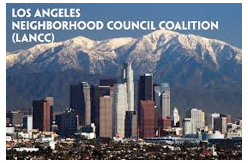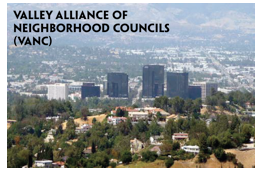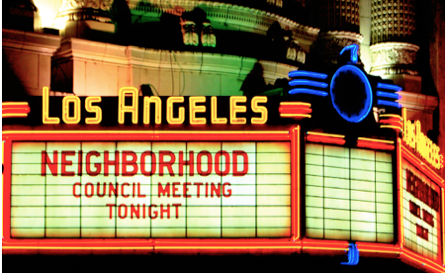Comments15 CANDLES—(Editor’s Note: Have LA’s Neighborhood Councils accomplished what they promised 15 years ago? What have we learned? What would we change? I’m sure you’ve heard myriad answers to these questions. Most often from folks whose claims and participation were marginal. Greg Nelson created LA’s Neighborhood Councils. He was, at the time, Chief of Staff for LA City Councilman Joel Wachs who became the engine for Greg’s idea. For the first time, in this CityWatch retrospective, the person responsible for Los Angeles’ Neighborhood Councils looks back … and ahead … talks about how it happened and if he had it all to do over again, what he would change.)
It’s been 15 years since the first Neighborhood Councils were certified, and began organizing their initial elections. I feel old.
But introduction of concept actually began 25 years ago in 1992. I was riding my bike to the top of a local mile-high mountain. To take my mind off the boredom of the five-hour grind, I wondered how the public could be better encouraged to engage themselves more effectively in government and their neighborhoods.
My conclusion was that involvement could be increased if people were able to come together as an entire neighborhood, not just as homeowners or as business owners, develop a louder voice, and begin making fundamental changes to the political system that would benefit all.
This was before the advent of search tools such as Google that we now take for granted. My research involved lots of time at libraries scouring through microfiche to find articles about neighborhood empowerment.
Eventually, I stumbled across a reference to work of a trio of professors at Tufts University. They were writing a book entitled, “The Rebirth of Urban Democracy.” I contacted one of the authors, Dr. Ken Thomson, who sent me some of the early galley proofs.
At first, I was disappointed that there were other cities (St. Paul, Portland, Dayton, and others) that had already implemented the concept that was brewing in my head. Then I realized I wouldn’t have to sell a totally wide-eyed idea to city hall. Now I could simply point to the successes in these other cities, and argue that we could do better.
As I was tailoring the idea into something that I felt would work in Los Angeles, my boss, Councilman Joel Wachs, decided to run for mayor. I told him of my idea, and he liked it enough to make it the cornerstone of his announcement to enter the race in the summer of 1992.
 What followed was years of battling a political system that rarely embraced meaningful changes.
What followed was years of battling a political system that rarely embraced meaningful changes.
Richard Riordan was elected mayor in 1993. During the campaign he endorsed Wachs’ Neighborhood Councils idea that he had heard during the campaign forums. Once the mayor, he had little or no interest.
Wachs tried a different tactic. In 1996, he introduced a detailed motion to the City Council asking them to enact the plan through an ordinance.
The motion was referred to the committee that Wachs chaired, but the other two members had their own well-intentioned ideas on how to promote community engagement. It became difficult to find enough consensus on what should be done.
Some other members of the City Council who were elected before the new term limits law took full effect were somewhere between disinterested to outright hostile to any plan that would give the public the ability to stick their noses under the tent with stronger voices, and increased transparency.
Then Mayor Riordan decided that the city charter needed to be amended to, among other things, give the mayor greater power as the city’s chief executive. The result was the creation two commissions … one elected and one appointed … that would work for two years to place a totally rewritten city charter on the ballot untouched by the elected officials.
Wachs decided to put his Neighborhood Council eggs in the charter reform basket, and imprint the neighborhood council plan into the charter where it could only be changed another public vote.
The neighborhood empowerment section of proposed city charter was finally approved essentially the way Wachs proposed it, minus lots of details. The reform commissioners wanted a streamlined document that heavy on principles, and short on specifics. The voters approved the package in 1999.
What followed was the development of The Plan for a Citywide System of Neighborhood Councils that contained the details that were purposely omitted in the charter. The new Department of Neighborhood Empowerment (DONE) organized a massive public input process that has never been matched in Los Angeles. Not even close.
Neighborhoods formed organizing committees to prepare applications for certification. The first ones dropped off their paperwork to me, now DONE’s general manager, at the office in the fall of 2001.
The Plan called for the neighborhood councils to be “as independent, self-governing, and self-directed as possible.” The reasoning was simple. The new councils could hardly be considered “empowered,” and certainly couldn’t be effective watchdogs and advocates if they were controlled by city hall.
The Plan even prescribed that DONE shall assist the councils pursue tax-exempt status and/or non-profit incorporation “to strengthen their independence.”
Then came a message from the Office of City Attorney that turned everything upside down. It irreparably damaged the momentum that was building, and created roadblocks that still hamper the empowerment effort.
The attorney explained that upon further review, the Neighborhood Councils, because they were created by actions of a city government, would be have to abide by the antiquated and complex Ralph M. Brown Act that was designed for all the right reasons in the ‘50s to ensure transparency in local government, but which made little sense for groups like neighborhood councils.
And by virtue of coming under the Brown Act, the councils also have to abide by state laws regarding access to their records, and conflicts of interest.
Instantly, DONE’s role of assisting the new councils in outreach, understanding government, being good leaders, increasing public participation, and getting things done with city government, shifted to teaching the council leaders about all the things they couldn’t do with the threat of criminal penalties hovering over them.
Neighborhood council board members and stakeholders who didn’t get their way on an issue studied the state laws and used their fine points as weapons. Mediating and settling the disputes was time-consuming and divisive.
I call my solution “delinking.”
Knowing what I know now, my drafts of a neighborhood council system would be significantly different.
 Neighborhood Councils would be nonprofit organizations.
Neighborhood Councils would be nonprofit organizations.
To enjoy the benefits offered by the city, such as money for staff, offices or free office space, communication systems, consultants, and other expenses, to receive extra time to provide testimony at city council and commission meetings, and to have their Community Impact Statements printed on the city’s agendas, the neighborhood councils would have to apply to the city for grants.
The city has been approving organizations for federal grant funds for decades, so the process isn’t anything new. To qualify for these new grants, the neighborhood councils would have to meet essentially the same standards they must meet now to be certified by the Board of Neighborhood Commissioners.
By “delinking” neighborhood councils from city hall, DONE would continue to be responsible for nurturing neighborhood councils, but its main role would be that of a grants administrator.
City money could handled by a third party that would be responsible to the city for the proper use of the funds by the Neighborhood Councils, thereby reducing the accounting burden on the Neighborhood Councils, and lots of petty squabbling that can suck the air out of the room at councils’ board meetings.
The neighborhood councils and the city would be bound through a contract, so DONE or the Board of Neighborhood Councils couldn’t change the terms on a whim.
Part of the grant requirements would be a “Sunshine Provision” that would ensure that meetings were open and fair by capturing the most valuable features of the Brown Act and the other state laws, and setting aside those that discourage public involvement.
A big frustration is that currently the city cannot enforce these state laws. The District Attorney is responsible for investigating and enforcing violations of the Brown Act, and State Fair Political Practices Commission does the same for the conflict of interest laws. But they simply have never had the time, staff, or will to bother with disputes among the neighborhood council members. Their focus needs to be on the corrupt elected officials.
Once truly independent from City Hall, the Neighborhood Councils would be in a position to exert greater political influence. They could hire their own attorneys, sue the city, and purchase their own insurance policies and liability protections.
 They could become a stronger counterforce to lobbyists and developers who are currently able to meet privately with all City Council member s while the Brown Act prohibits the neighborhood councils from doing the same thing.
They could become a stronger counterforce to lobbyists and developers who are currently able to meet privately with all City Council member s while the Brown Act prohibits the neighborhood councils from doing the same thing.
The Board of Neighborhood Commissioners would no longer be needed because the process of formally certifying Neighborhood Councils would, by necessity, be eliminated. However, there would be a value role for a variety of advisory groups to provide grassroots input to DONE.
To be honest, changing the City Charter is not easy. The City Council, or the public through an initiative, need to place an amendment on the ballot.
There is a Plan B.
A Sunshine Law (an ordinance approved by the city council and mayor) could accomplish the goal of tailoring the provisions of the Brown Act, and sister laws, to our Neighborhood Councils.
The ordinance could provide for the settlement of disputes short of the criminal penalties for violating state laws. Work on just such a law has been partially completed.
The City Charter required that several years into the new neighborhood council system, a citizens’ commission would meet and take a look at how things were going.
The Neighborhood Council Review Commission met for two years and agreed that there are inequities in how the state’s Brown Act, Public Records Act, and Political Reform Act affect the councils. A small group of people, including me, began work on a local Sunshine Law. The two-year time limit ran out before it could finish its work.
Finishing the Sunshine Law was too much work for the City Council members, so it was forgotten. A group of Neighborhood Council members, possibly with assistance from city staff, could finish the job.
(Greg Nelson is a former general manager of the Department of Neighborhood Empowerment, was instrumental in the creation of the LA Neighborhood Council System, served as chief of staff for former LA City Councilman Joel Wachs. He can be reached at [email protected] .)
-cw
















